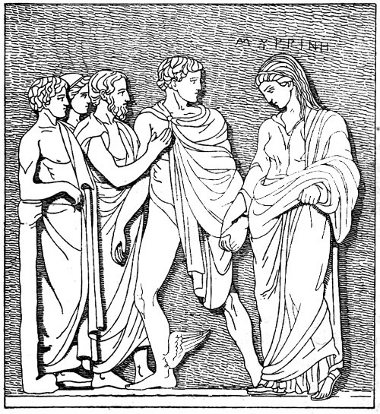
How many gods are too many?
1? (atheism)
2? (monotheism)
Or: Bring ’em on – there can never be too many! Woohoo! (polytheism)
On his blog Siris our friend Brandon Watson has been doing a book review of an interesting book by a polytheist named John Michael Greer, called A World Full of Gods.
I’ve been thinking a lot lately about monotheism and polytheism, and I think this looks interesting.

Hi Dale,
I suppose some tritheists would say that 4 are too many. 🙂
Hi Brandon.
Thanks. I’m sure that I’ll eventually read the book, and in the short term I’ll keep up with reading your review. 🙂
However, my criticism of neo-paganism focuses on the lack of a solid cosmology. I concede to multiple paranormal entities in religious experiences. Those entities could be interpreted as paganism or monotheism with good and bad angels in a fallen universe. Given the current fallen universe, distinguishing between the two could be difficult for some. But I’ve never heard a neo-pagan provide a solid view of origins or have a positive outlook for the destiny of all galaxies turning into black holes. The eventual black holes disturb many religious monists.
Well, that’s the outline of my criticism of neo-paganism. 🙂
Hi, James,
It sticks to very general issues. It’s a problem with writing a book arguing that polytheism, as such, that there are so many different kinds, and Greer (although a neo-Druid himself) is deliberately not taking any sides. It’s not a full-fledged polytheistic philosophy, in other words; it’s an argument that thinking about polytheism can enrich philosophy of religion.
It would be nice to have the sort of work you have in mind — a Hellenic Reconstructionist, for instance, giving a well-thought-out and updated version of Hesiod, for instance– but Greer is aiming for something more basic than that, to get polytheism more of a hearing at the philosophy of religion table.
Brandon, I would especially want to read the book if it proposes a theogony and a cosmogony. Does the book propose a theogony and a cosmogony?
I do recommend the book; it has its flaws and a fair portion of it you’d find lightweight, but it does a very good job of putting a new perspective on things, and the argument that religious experience naturally favors polytheism is interesting and nicely developed.
Comments are closed.